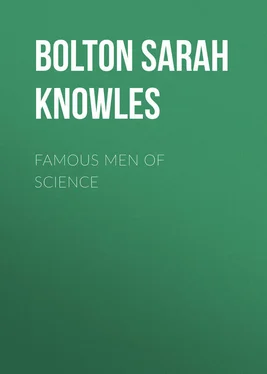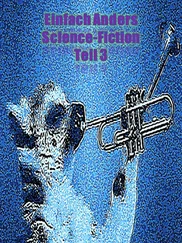Sarah Bolton - Famous Men of Science
Здесь есть возможность читать онлайн «Sarah Bolton - Famous Men of Science» — ознакомительный отрывок электронной книги совершенно бесплатно, а после прочтения отрывка купить полную версию. В некоторых случаях можно слушать аудио, скачать через торрент в формате fb2 и присутствует краткое содержание. ISBN: , Жанр: foreign_language, foreign_antique, foreign_prose, Биографии и Мемуары, на английском языке. Описание произведения, (предисловие) а так же отзывы посетителей доступны на портале библиотеки ЛибКат.
- Название:Famous Men of Science
- Автор:
- Жанр:
- Год:неизвестен
- ISBN:http://www.gutenberg.org/ebooks/35489
- Рейтинг книги:3 / 5. Голосов: 1
-
Избранное:Добавить в избранное
- Отзывы:
-
Ваша оценка:
- 60
- 1
- 2
- 3
- 4
- 5
Famous Men of Science: краткое содержание, описание и аннотация
Предлагаем к чтению аннотацию, описание, краткое содержание или предисловие (зависит от того, что написал сам автор книги «Famous Men of Science»). Если вы не нашли необходимую информацию о книге — напишите в комментариях, мы постараемся отыскать её.
Famous Men of Science — читать онлайн ознакомительный отрывок
Ниже представлен текст книги, разбитый по страницам. Система сохранения места последней прочитанной страницы, позволяет с удобством читать онлайн бесплатно книгу «Famous Men of Science», без необходимости каждый раз заново искать на чём Вы остановились. Поставьте закладку, и сможете в любой момент перейти на страницу, на которой закончили чтение.
Интервал:
Закладка:
Again she writes, "I leave you to imagine how pleased I am to read the letters you constantly send me. Only to see how your love for me prompts you to let me know fully what favors you receive from these gentlemen is enough to fill me with joy. Nevertheless I feel it a little hard to hear that you intend leaving home so soon, because I shall have to do without you, and for a long time too, if I am not mistaken. And your lordship may believe that I am speaking the truth when I say that except you there is not a creature who gives me any comfort. But I will not grieve at your departure because of this, for that would be to complain when you had cause for rejoicing. Therefore I too will rejoice, and continue to pray God to give you grace and health to make a prosperous journey, so that you may return satisfied, and live long and happily, all which, I trust, will come to pass by God's help.
"I send two baked pears for these days of vigil. But as the greatest treat of all, I send you a rose, which ought to please you extremely, seeing what a rarity it is at this season. And with the rose, you must accept its thorns, which represent the bitter passion of our Lord, while the green leaves represent the hope we may entertain that through the same Sacred Passion we, having passed through the darkness of this short winter of our mortal life, may attain to the brightness and felicity of an eternal spring in heaven."
"Only in one respect does cloister life weigh heavily on me; that is, that it prevents my attending on you personally, which would be my desire, were it permitted. My thoughts are always with you."
And so the seven years of study went by, with the sweet love of Maria Celeste to brighten them. There are none so great that they can live without affection.
At the end of the seven years, Urban VIII. came to the pontifical throne, and Galileo and other scientists rejoiced, for he had seemed liberal in thought and generous in heart. When he was cardinal, he had sent a letter to Galileo, saying, "The esteem which I always entertain for yourself and your great merits has given occasion to the enclosed verses. If not worthy of you, they will serve at any rate as a proof of my affection, while I purpose to add lustre to my poetry by your renowned name. Without wasting words, then, in further apologies, which I leave to the confidence which I place in you, I beg you to receive with favor this insignificant proof of my great affection."
At Easter, 1624, Galileo, now sixty years old, resolved to proceed to Rome, to welcome the new pope, and urge his approval of the Copernican theory. Frail in health, he was carried most of the way in a litter. During a visit of six weeks, he had six long audiences with Urban VIII.; but, though he was affably received, the pope was in no wise convinced, but rather tried to convince Galileo that he was in error.
Yet so kind was he that Galileo went back to Florence with the hope and belief that he could bring out his great work, "Dialogues on the Two Principal Systems of the World, the Ptolemaic and Copernican," without opposition from the church. In this book, Galileo gave the results of scientific research and discovery in the half century preceding, using such clear yet brilliant style in writing as to make the work attractive even to the unlearned.
It was ready for publication in March, 1630, but to be sure that the pope did not object, Galileo was urged to go in person to Rome. He went and presented the matter to Urban, who gave his consent provided that the title should show that the Copernican system was treated as a hypothesis merely, and that he, the pope, should write the closing argument.
Rather than forego the publication of that upon which he had worked for years, Galileo consented, and returned to Florence. A license to publish was then obtained from the Inquisitor-General, and the Vicar-General of Florence, after great delay. A second and a third time the papal authorities wished to look over the manuscript. Two years went slowly by.
Other anxieties came to the man of sixty-eight, besides the long delay. The impecunious Michelangelo sent his wife, seven children, and a German nurse, to the home of Galileo, to be taken care of. The eldest nephew was sent to Rome to study music. He was found to be obstinate, impudent, and dissolute, "wicked ways" which his weak and indulgent father said "he did not learn from me, or any one else belonging to him. It must have been the fault of his wet nurse!"
Galileo's son Vincenzo had married and brought his wife home to live. Strange fortune for this man of genius! Strange that he must have helpless relatives, and constant pecuniary troubles. Most great lives are as pathetic as they are great.
As ever, the one gleam of light was the daily letter from Maria Celeste, in which she expressed a tenderness beyond what any daughter ever had for a father. "But I do not know how to express myself, except by saying that I love you better than myself. For, after God, I belong to you; and your kindnesses are so numberless that I feel I could put my life in peril, were it to save you from any trouble, excepting only that I would not offend His Divine Majesty."
Finally Galileo moved to Arcetri, over against the convent, to be near the one who alone satisfied his heart.
In January, 1632, the "Dialogues" appeared. Copies were sent to his friends and disciples throughout Italy. The whole country applauded, and at last Galileo seemed to have won the homage he had so long deserved.
But a storm was gathering. Enemies were at work prejudicing the mind of Urban VIII., making him feel that Galileo had wrought evil to the church. At once an order came from the Inquisition to secure every copy in the booksellers' shops throughout Italy, and to forward all copies to Rome.
In October of the same year of publication, Galileo was summoned to appear at Rome, to answer to that terror of past centuries, the charge of heresy. His friends urged that he was old and feeble, and that he would die on the journey, but Urban's commands were peremptory.
Galileo was deeply depressed by the summons, and wrote a friend: "This vexes me so much that it makes me curse the time devoted to these studies, in which I strove and hoped to deviate somewhat from the beaten track generally pursued by learned men. I not only repent having given the world a portion of my writings, but feel inclined to suppress those still in hand, and to give them to the flames, and thus satisfy the longing desire of my enemies, to whom my ideas are so inconvenient."
On January 20, 1633, the decrepit old man set out in a litter for Rome, arriving on February 13. On April 12, he was brought before the Inquisition, and briefly examined and then remanded to prison, though treated with great leniency. The anxiety and deprivation from outdoor exercise brought on illness, and he was confined to his bed till led a second time before the Inquisition, April 30.
Weak, aged, in fear of torture, he made the melancholy confession that his "error had been one of vainglorious ambition, and pure ignorance and inadvertence." Pure ignorance! from the man who had studied for fifty years all that the world knew of science! But he recalled how men had died at the stake for offending the church. The world is not full of men and women who can suffer death for their convictions, however much we may admire such courage. On May 10, he was summoned a third time before the Inquisition, and told that he had eight days in which to write his defence. In touching language he stated how the book had been examined and re examined by the authorities, so that there might be nothing heterodox in it; and then he urged them to consider his age and feeble health.
A fourth time he came before the Holy Congregation, June 21, and was asked whether he held that the sun is the centre of the solar system, and that the earth is not the centre, and that it moves. He replied, "I do not hold, and have not held this opinion of Copernicus since the command was intimated to me that I must abandon it; for the rest, I am here in your hands, – do with me what you please."
Читать дальшеИнтервал:
Закладка:
Похожие книги на «Famous Men of Science»
Представляем Вашему вниманию похожие книги на «Famous Men of Science» списком для выбора. Мы отобрали схожую по названию и смыслу литературу в надежде предоставить читателям больше вариантов отыскать новые, интересные, ещё непрочитанные произведения.
Обсуждение, отзывы о книге «Famous Men of Science» и просто собственные мнения читателей. Оставьте ваши комментарии, напишите, что Вы думаете о произведении, его смысле или главных героях. Укажите что конкретно понравилось, а что нет, и почему Вы так считаете.












